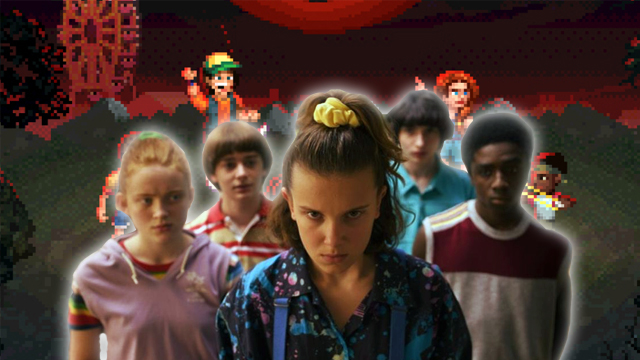In many ways, Netflix’s nostalgia-driven hit Stranger Things is the perfect type of television show to be adapted into a video game. It features a diverse cast that each have different skills and methods to solving puzzles. You’ve got the lovable Steve Harrington with his nail-covered baseball bats, Eleven with her psychic powers, Lucas and his slingshot, and so on. The recently released Stranger…

Atlas is an action-rpg with rogue-like elements where you use your ability to control the ground to fight the enemies and move through procedurally generated worlds.










